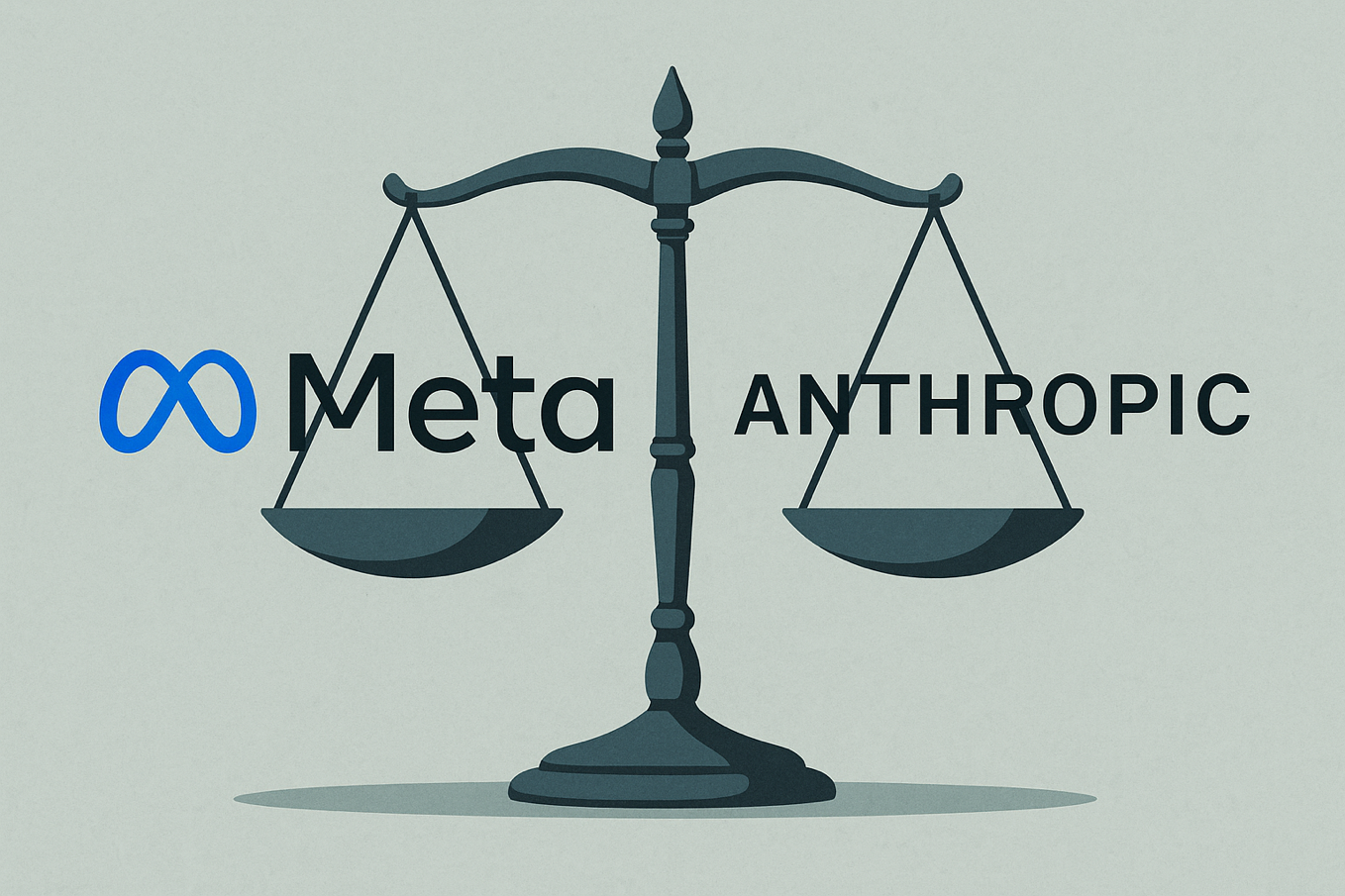Artificial intelligence companies continue to face legal challenges over how they train their models. Recent court cases involving lead players — Meta Platforms and Anthropic — bring fresh insights into the complex relationship between AI development and copyright law. Both companies have scored legal victories in lawsuits where authors claimed their copyrighted works were used without permission to train AI systems. These cases examine the intersection of AI training with copyright protections and the emerging doctrine of fair use.
What’s Happening & Why This Matters
This week, Meta and Anthropic both won key decisions in separate lawsuits concerning their use of copyrighted books to train AI models. The rulings reveal a judicial struggle to bridge copyright protections with technological innovation.
In the Meta case, a group of 13 authors sued the company for using their books without authorization to train its AI system, Llama. The court dismissed the case, but not because Meta’s actions were deemed lawful. U.S. District Judge Vince Chhabria ruled that the authors failed to present the correct legal arguments. He expressed concern over AI companies, including Meta, becoming “serial copyright infringers” by using human-created works without permission during AI training. Chhabria wrote, “This ruling does not stand for the proposition that Meta’s use of copyrighted materials to train its language models is lawful.” The decision leaves room for future legal challenges while currently allowing AI development to proceed.
Meanwhile, Anthropic faces a nuanced outcome. Judge William Alsup found that Anthropic’s AI, Claude, did not violate copyright laws by training on millions of copyrighted books. The process of transforming vast amounts of written content into original AI output qualified as fair use under US law because it was “quintessentially transformative.” However, Anthropic must still face trial on separate claims because it obtained the training books from pirate websites rather than from legally purchased sources.
The cases illustrate a common practice in AI development. To build competitive large language models, companies rely heavily on extensive datasets, including copyrighted books. In the rush to advance AI, some companies source these materials from unauthorized online repositories. This raises questions about the legality and ethics of such practices.
A spokesperson for Meta described fair use as a “vital legal framework” that supports the creation of transformative AI technology. In contrast, authors’ legal representatives denounced the rulings, pointing to “historically unprecedented pirating” by AI companies.
Judge Chhabria acknowledged the challenges faced by creators in this new AI era. He warned that generative AI has the potential to flood markets with endless content—images, music, books—produced far faster than traditional human methods. This could undermine incentives for artists and authors to create original works. “By training generative AI models with copyrighted works, companies are creating something that often will dramatically undermine the market for those works,” he said.
These rulings are pivotal moments for AI-copyright law, as courts navigate new terrain between innovation and intellectual property rights.
TF Summary: What’s Next
The Meta and Anthropic legal decisions are significant for ongoing debates about AI training data. While fair use currently offers some protection for AI developers, the source of training materials and the rights of content creators remain contested. Future cases will further clarify how AI innovators obtain and use copyrighted content responsibly.
Stakeholders across tech and creative industries seek clearer legal standards. Policymakers, courts, and companies must weigh progressive AI advancements against protecting creators’ livelihoods. Watch for further trials and regulations shaping AI’s growth trajectory in copyright protections.
— Text-to-Speech (TTS) provided by gspeech


